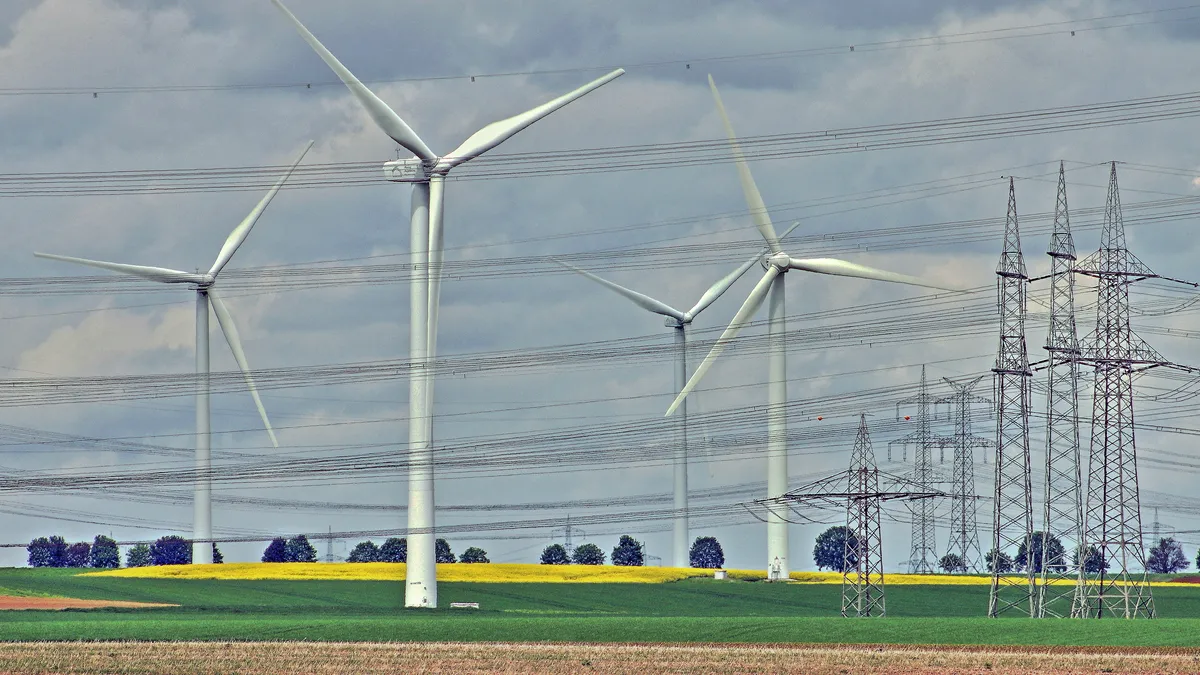David E. Adelman specializes in environmental law, administrative law and climate change policy. He holds the Harry M. Reasoner Regents Chair in Law at the University of Texas, Austin.
Over the last few years, concern has reached a boiling point that federal permitting processes make it nearly impossible for the U.S. to build enough renewable infrastructure at the speed the nation needs to combat climate change.
The warnings emanate from the halls of Congress to the pages and podcasts of our nation’s most trusted and widely read publications, and they go something like this: federal permitting procedures have gotten out of hand and they must be rolled back to expedite renewable energy development at the speed and scale our nation needs. In other words, the well-intentioned reader is led to believe that to save the planet, the United States must dismantle federal environmental protections.
There’s one major problem with this argument, however. It’s simply not true.
I recently conducted the first national study of federal permitting for renewable energy projects in the United States, which will be published in the Berkeley Ecology Law Quarterly. As part of this research, I reviewed renewable energy projects across the country that were built between 2010 and 2021. My analysis revealed that less than 5% of the wind and solar projects required a comprehensive environmental review or bespoke permit, thereby dispelling the false “permitting reform” narrative that federal permitting is impeding progress on climate action and must be rolled back.
In fact, the vast majority of renewable infrastructure projects — more than 95% — underwent streamlined federal procedures or avoided federal regulation altogether.
These findings are sure to throw cold water on industry insiders, and the elected officials who echo their talking points. They’ve long sought to grease the wheels of industrial development by eliminating common-sense checks and balances like federal environmental laws. And it’s concerning that certain corners of the Democratic Party seem to have aligned behind the cause, albeit for different reasons.
What liberal proponents don’t appreciate, and conservatives aren’t advertising, is that the fossil fuel industry stands to gain much more from environmental rollbacks than green energy does both because the industry’s dangerous impacts are far greater, and because it is more often the subject of opposition. Any benefits to green infrastructure that would be gained by undoing federal protections are likely to be more than offset by the proliferation of fossil fuels.
Despite this, the Senate Energy and Natural Resources Committee recently passed the latest incarnation of the so-called permitting reform bill, the Energy Permitting Reform Act of 2024. The authors of the law claim that it will “accelerate” permitting of critical energy projects, but less widely touted are the parts of the bill that have striking similarities to the Heritage Foundation’s Project 2025 agenda, including opening tens of millions of acres of public lands for fossil fuel development, and expediting approvals for LNG gas export projects that send U.S. gas overseas. The bill also greatly limits the amount of time opponents of fossil fuel facilities and other projects would have to challenge approval of these projects in court.
Thankfully, the Biden-Harris administration has thus far declined to undo bedrock environmental protections, opting instead to wisely consider climate, environmental justice, and public health impacts in project analyses. But what if fossil fuel CEOs and their allies in Congress are successful in their quest for so-called reform?
Just ask the father of the environmental justice movement Dr. Robert Bullard.
Dr. Bullard is the founding Director of the Bullard Center for Environmental and Climate Justice. He’s also dedicated his life to fighting environmental racism.
Bullard has been vocal in his concern about the false permitting narrative permeating certain corridors of power. In one recent conversation, we talked about how the National Environmental Policy Act, known as NEPA, which requires federal agencies to assess the environmental effects of major federal actions prior to making decisions, has been singled out more than any other federal statute as a source of delay and a tool for those with parochial or narrowly self-interested reasons for opposing projects.
“NEPA, or ‘the People’s Environmental Law,’ has been instrumental in protecting Black, brown, Indigenous, and low-income communities from the relentless buildout of fossil fuel infrastructure,” he told me.
According to Bullard, NEPA has provided the bedrock protections that allow already overburdened communities from Chaco Canyon to Cancer Alley to mitigate or avoid the harms from proposed projects. In recent years frontline communities have secured important victories through NEPA, and he fears what would happen if these public processes were eliminated in the name of green energy deployment.
For those well-meaning lawmakers and members of the media who have clamored that environmental protections like NEPA are no longer necessary, one has to wonder, no longer necessary for whom? Communities of color and poor communities have long borne the brunt of toxic fossil fuel infrastructure, and those negative impacts would multiply if NEPA was undone, and the oil and gas industry went on an unfettered building spree.
Federal environmental permitting has its shortcomings, of course. Coordination among agencies can be disjointed. Delays are real. And the projects that do require full environmental reviews and bespoke permits demand more agency time and resources. That’s why leaders in Congress and the Biden administration should take action now to enhance and strengthen the permitting process. By empowering agencies to build on existing streamlined procedures, invest in sufficient staffing, and, most importantly, address the instances in which permitting processes fall short, D.C. lawmakers can accelerate the development of our nation’s clean energy infrastructure.
My hope is that these new findings put to rest any notion that the nation must choose between expediting low-carbon energy projects and protecting communities from dangerous oil, gas, and petrochemical plants. It’s a false choice. And for the health and safety of every community, it must be rejected.






















